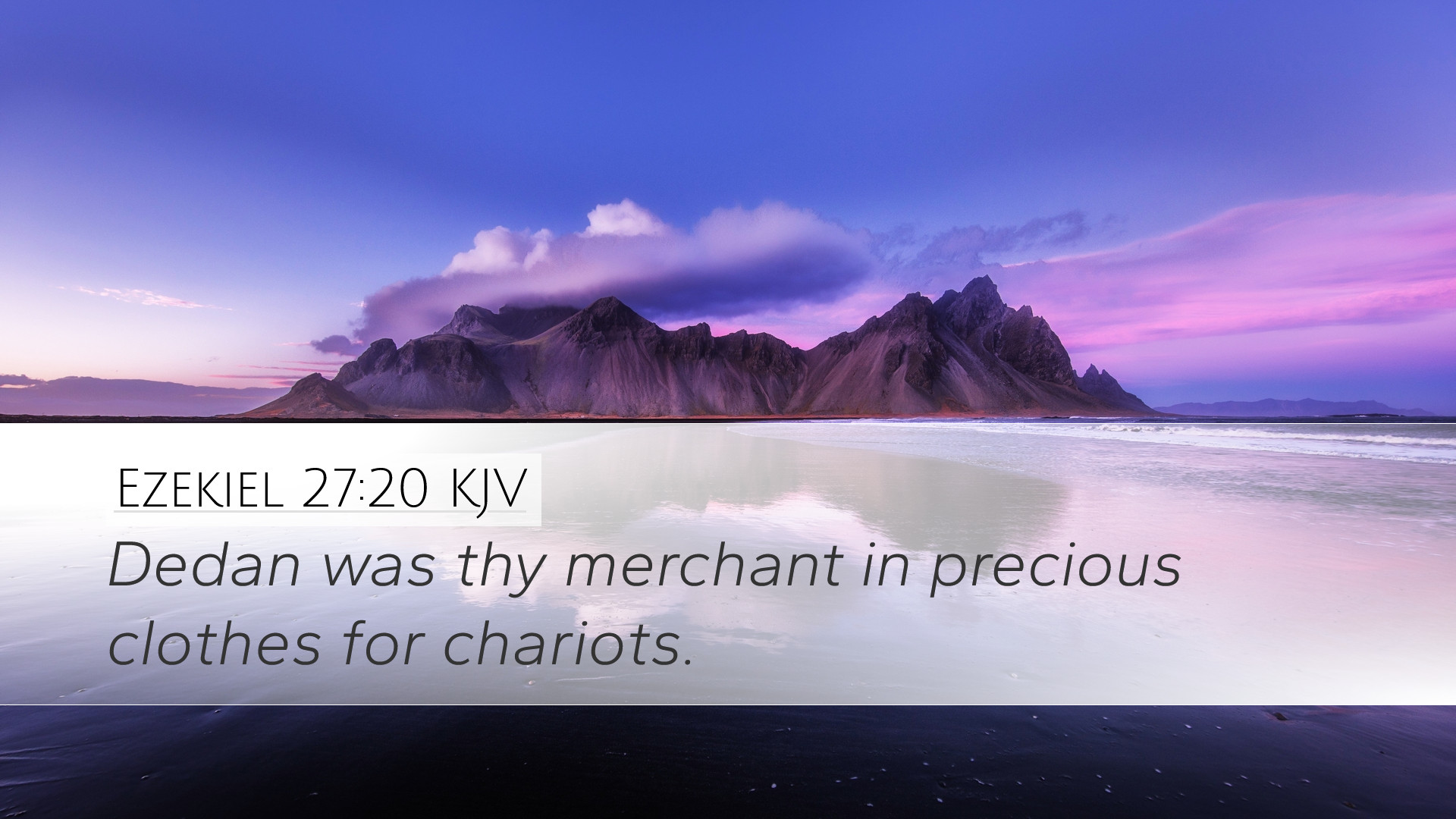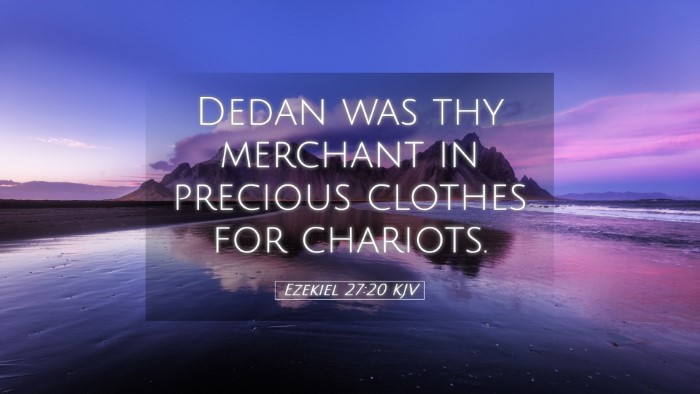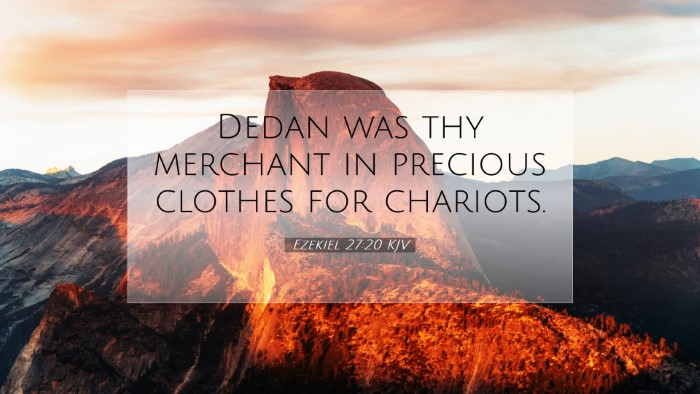Ezekiel 27:20 Commentary
Verse: "Dedan was thy merchant in precious clothes for chariots." (Ezekiel 27:20)
Introduction
The verse in question forms part of a broader prophetic declaration in Ezekiel's lamentation over Tyre—a city known for its extensive trade and wealth. In this context, Ezekiel highlights various trading partners that contributed to Tyre's mercantile success. The mention of Dedan serves to illustrate the variety and richness of Tyre's trade relations, specifically in luxurious goods.
Historical Background
Dedan, a region located largely in modern-day Saudi Arabia, was known for its merchants who traded in fine textiles and precious goods. The significance of this verse lies in understanding the cultural and economic implications of Tyre’s trading relationships, especially the importance of luxury items in ancient commerce, particularly concerning their impact on social status and power.
Thematic Insights
The luxurious nature of the goods traded is central to grasping the deeper lessons within this verse.
1. The Nature of Trade
Albert Barnes notes that trade can be both a blessing and a curse. In this instance, while the commerce with Dedan highlights Tyre’s prosperity, it simultaneously reflects its spiritual decline through the indulgence in material wealth.
2. Symbols of Status
The reference to "precious clothes for chariots" conveys more than just material wealth; it symbolizes status, influence, and power. Matthew Henry emphasizes that those who adorned their chariots with fine garments were seeking to project an image of power and prestige, yet this pursuit often led to moral and spiritual bankruptcy.
3. A Warning Against Materialism
Adam Clarke sees in this verse a cautionary tale regarding materialism. The affluent garments for chariots illustrate humanity's tendency to place value on outward appearances and material wealth rather than on spiritual integrity and divine favor. Clarke suggests that the ultimate fate of such material pursuits is futility, particularly as Tyre faces impending judgment.
Theological Reflections
In the broader theological context, this verse serves as a reminder of the transient nature of earthly wealth and the importance of aligning one's priorities with God’s purposes.
1. Divine Judgment on Pride
As Tyre rejoiced in its wealth, it became a target for divine judgment. The lamentation over Tyre is not just about loss but a reflection of God’s displeasure with pride and arrogance that comes from wealth. This theme is woven throughout the prophetic books and serves as a timeless reminder for both ancient and modern audiences.
2. The Ultimate Source of Wealth
The luxurious items traded by Dedan illustrate that true wealth does not lie in material possessions but in spiritual riches. Matthew Henry remarks that while earthly goods may decay, the treasures laid in heaven are everlasting. This reflects Jesus’ teaching in Matthew 6:19-21 regarding where one’s treasure should be focused.
Practical Applications
This verse speaks powerfully to our contemporary context, where the allure of wealth and status often distracts from spiritual commitments.
1. Evaluating Priorities
- Pastors and theologians are called to reflect on how material wealth is perceived in their communities and how it influences their ministry.
- Students of the Word should examine their own lives to ascertain whether they have allowed material desires to overshadow their pursuit of God.
2. Cultivating Spiritual Wealth
- Encourage congregations to shift focus from secular achievements to spiritual growth through prayer, service, and community engagement.
- Foster environments where discussions around wealth include considerations of stewardship and ethics in light of biblical teaching.
Conclusion
Ezekiel 27:20 serves as a profound reminder of the complexities of wealth, status, and divine judgment all encapsulated within a single trading relationship. As we explore this verse, we are reminded of the fleeting nature of earthly treasures and the need to anchor our identities and priorities in the eternal wealth of Christ.


